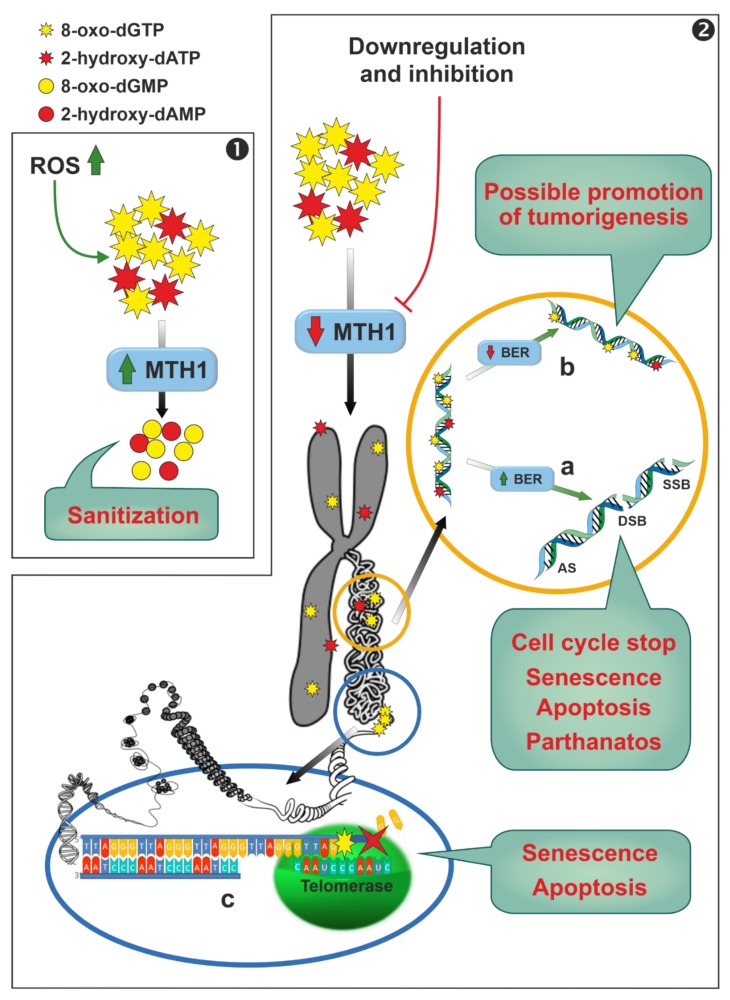Figure 6.
Scheme of possible effects of therapeutic use of human MutT homolog 1 (MTH1). Panel 1: Cancer cell proliferation is stimulated by the accumulation of ROS, which favours the formation of 8-oxo-dGTP and 2-hydroxy-dATP. In order to avoid the potentially toxic effects of the incorporation of oxo-derivatives of nucleotides, the cells upregulate MTH1 sanitizing enzyme. Panel 2: downregulation or inhibition of MTH1 leads to an abnormal incorporation of oxidised nucleotides in DNA. Panel 2a: in order to deal with this excessive accumulation of oxo-nucleotides in DNA, the base excision repair (BER) system is, in general, upregulated. If the misincorporation of oxo-nucleotides exceeds the capability of BER, abasic sites (AS) or single strand brakes (SSB) or double strand brakes (DSB) accumulate, leading to several serious consequences. Panel 2b: if BER is downregulated, incorporated oxo-nucleotides are not repaired. In this case no cytotoxic effect is reported, but a promotion of tumourigenesis can occur. Panel 2c: the misincorporation of 8-oxo-dGTP by telomerase into the repeated telomeric sequence TTAGGG leads to the inhibition of the polymerase activity of the enzyme.

